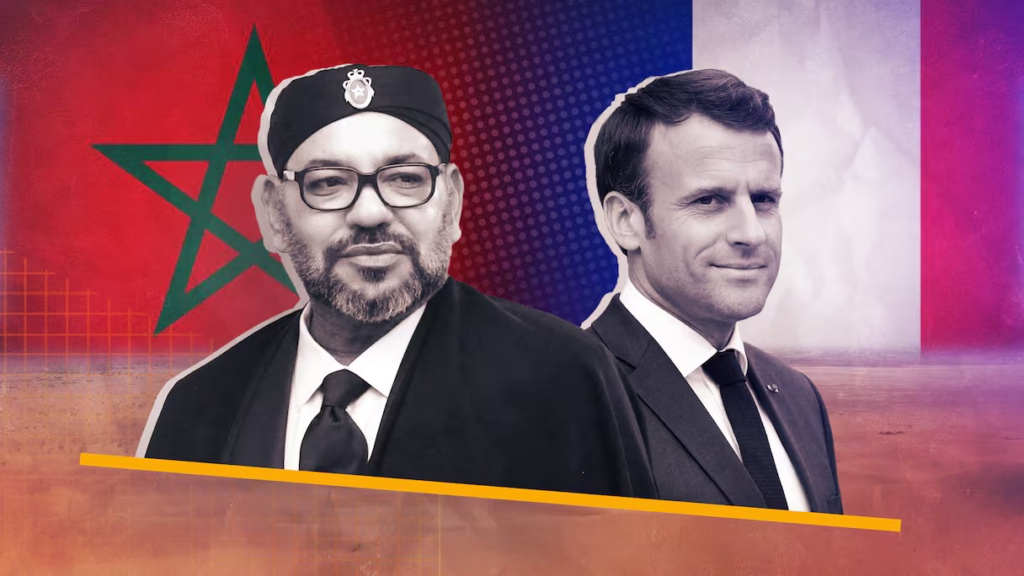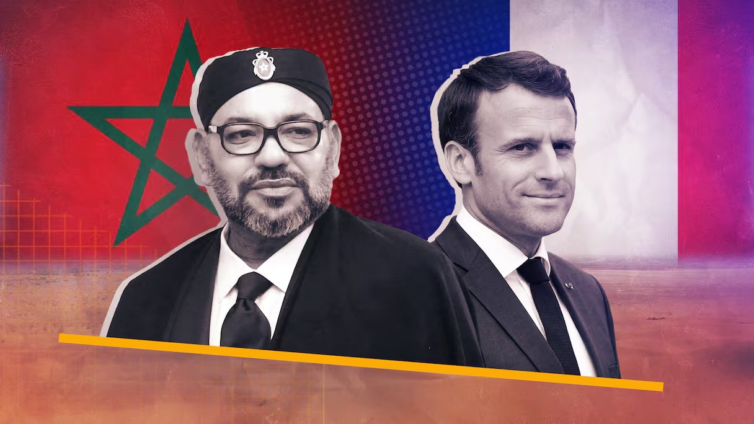France recognises a plan for autonomy for the Western Sahara region under Moroccan sovereignty as the only way of resolving a long-running dispute over the territory, President Emmanuel Macron said in a letter on Tuesday.
The dispute, dating back to 1975, pits Morocco, which considers Western Sahara its own territory, against the Algeria-backed Polisario Front, which seeks an independent state there.
France, as the former colonial power in the region, has walked a diplomatic tightrope between Rabat and Algiers on the issue. Most of France's Western allies already back Morocco's plan.
The decision angered Algeria, which decided to withdraw its ambassador to France, with the charge d’affaires assuming responsibility for the Algerian diplomatic representation, according an Algerian foreign ministry statement.
"For France, autonomy under Moroccan sovereignty is the framework within which this issue must be resolved," according to the letter sent by Macron to Morocco's King Mohammed VI.
"Our support for the autonomy plan proposed by Morocco in 2007 is clear and constant. For France, it now constitutes the only basis for achieving a just, lasting and negotiated political solution in line with the resolutions of the United Nations Security Council."
Macron said Paris views Western Sahara as part of Morocco's present and future sovereignty, adding that France would act according to this position domestically and internationally.
The Moroccan Royal Palace in a statement welcomed the announcement as a "significant development in support of Moroccan sovereignty over the Sahara."

The Algerian foreign ministry said: "The French government is denying the right of the Sahrawi people to self-determination..."
A French diplomatic source said Algeria's decision to recall its envoy was sovereign, but that Paris remained determined to deepen its bilateral ties with Algiers.
"We are looking to the future with a strong ambition to benefit both our peoples," the source said.
Algeria has recognised the Polisario's self-proclaimed Sahrawi republic and backed a 1991 United Nations plan for a referendum with independence as an option.
That referendum never took place due to disagreements over who should vote and how it should be conducted and recent U.N. Security Council resolutions have not mentioned the option, urging the parties to work together for a realistic solution based on compromise.
Spain, the former colonial power in Western Sahara, said in 2022 it backs Morocco's autonomy plan.
The U.S., Israel and Arab monarchies also back Morocco's sovereignty over the territory, where 28 mostly African and Arab countries have opened consulates in what Rabat sees as tangible support.
The Polisario in 2020 withdrew from a UN-brokered truce. But the long-frozen conflict remains of low intensity.
Latest Stories
-
“Elements within NPP worked against me for supporting ‘Ken must go'” – Cynthia Morrison
16 minutes -
IMF Boss commends finance minister for strong commitment to economic reform
25 minutes -
Cynthia Morrison advises Ghanaian women to diversify their skills to build wealth
32 minutes -
UK deports 43 immigration offenders to Ghana and Nigeria
1 hour -
Piwak Natural Health urges Akosombo victims to rebuild with new donation
2 hours -
Ghana’s Para athlete Gilbert Ampiah wins bronze at Marrakech Grand Prix 2025
2 hours -
6 dead in Adansi Dompoase crash involving VIP bus and sprinter
2 hours -
Saturday’s heavy rainstorm caused outages within our network – ECG
3 hours -
Police arrest 3 over gold robbery at Wassa Afransie
4 hours -
Against all odds: Zinabu Issah clinches silver for Ghana at WPA Marrakech 2025
4 hours -
ASFC 2025: Ghana girls complete host-and-win mission after beating Uganda
4 hours -
NPC President congratulates new GOC Executives
4 hours -
Stonebwoy displays maturity amid Aisha Modi’s attacks: a masterclass in brand integrity and respect
5 hours -
Afro-Arab Group CEO commends Kwahu Business Forum
5 hours -
CAF President Motsepe vows action against rising stadium violence
5 hours

